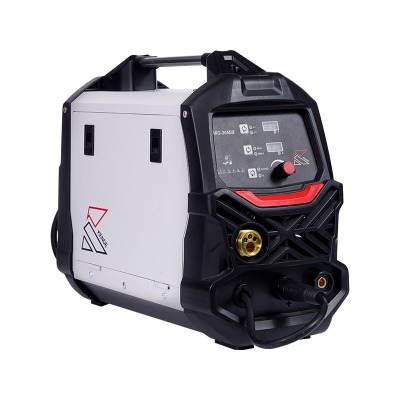Email: [email protected]
 2025.11.07
2025.11.07
 Industry News
Industry News

Welding machines are essential tools for industries such as construction, manufacturing, automotive, and shipbuilding. As global demand increases, many buyers look to purchase welding machines from international suppliers. This raises a common question: can welding machine factories support export and international shipping efficiently? The answer involves production capacity, logistics, packaging, and regulatory compliance.
1. Production Capacity and Order Management
Welding machine factories that handle international orders need sufficient production capacity. They typically maintain organized production lines and quality control measures to ensure machines meet required specifications. Before confirming an export order, factories often check inventory levels, production schedules, and testing results. This preparation helps ensure that machines are shipped on time and meet the buyer's expectations, reducing delays and errors in international transactions.
2. Packaging for Safe Shipping
Proper packaging is critical for international shipping. Welding machine factories use durable crates, cushioning materials, and protective wrapping to prevent damage during transport. Sensitive components, including electronic circuits, cables, and welding torches, are carefully secured to reduce the risk of breakage. Clear labeling and handling instructions are also applied to meet customs and freight requirements. By using robust packaging, factories ensure that machines arrive at their destination in good condition and ready for use.
3. Shipping Methods and Logistics
International shipping requires careful planning and coordination. Welding machine factories typically work with freight providers experienced in overseas transport. Depending on the size and urgency of the order, machines can be shipped by sea, air, or express courier. Factories may provide tracking numbers and estimated delivery times, allowing buyers to monitor shipments in real time. Efficient logistics planning ensures that machines reach international clients safely and on schedule.
4. Regulatory Compliance and Documentation
Exporting welding machines involves complying with customs and regulatory requirements. Welding machine factories prepare essential documentation, including invoices, packing lists, certificates of origin, and any necessary export licenses. These documents help prevent delays or additional charges at customs. Factories familiar with export regulations can guide buyers through the paperwork and ensure shipments meet legal requirements, which simplifies the shipping process for international clients.
5. Quality Standards and Certification
Many international buyers require welding machines to meet specific quality or safety standards. Welding machine factories often provide products certified under ISO, CE, or other relevant standards depending on the destination country. Compliance with these standards assures buyers that the machines are safe and reliable. By maintaining quality certifications, factories demonstrate readiness for global markets and provide confidence to overseas customers.
6. Customer Communication and Support
Clear communication is essential for international orders. Welding machine factories often provide detailed product information, guidance on usage, and updates on production and shipping status. Some factories also offer technical support or online troubleshooting to assist buyers after the machines arrive. Effective communication ensures that buyers understand the process and can resolve any issues quickly, which strengthens trust and satisfaction.
Welding machine factories can support export and international shipping through organized production, careful packaging, logistics coordination, regulatory compliance, and customer support. By working with factories experienced in international trade, buyers can receive reliable machines while avoiding potential shipping challenges. Understanding the export process and choosing a factory capable of managing overseas orders helps ensure that welding machines arrive safely and operate effectively in any location.